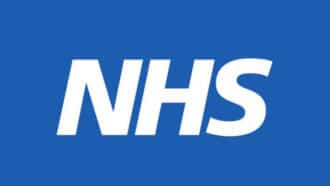The NHS’s multi-million pound deal with Palantir: what you need to know
It’s the largest data deal in NHS history. Today, a £330 million pound contract to manage NHS England data in a vast new system – the ‘Federated Data Platform’ (FDP) —was awarded to US company Palantir.
This is a turning point for the NHS. It’s about your right to control who sees your health record and how this country should handle one of the most precious public assets our NHS has – our collected health data.
Foxglove has been campaigning on health data, speaking to NHS staff and investigating how government is trying to use our heath data for years. Here’s what you need to know.
What is the NHS Federated Data Platform?
The FDP is a government project to centralise NHS data, with a £330m price tag.
So far, five areas of work have been named. But the government says this scope will expand. They indicate health data in the FDP will be put to further uses – but not what those uses will be.
Neither has it made ironclad commitments not to use our data later for other, more controversial, uses – such as sharing it with commercial companies for profit. Or other government departments.
Details on safeguards are vague and changing. Once the FDP is built and our data starts to flow, it seems the main thing standing between the data and its re-use for new purposes – beyond our care – is the Secretary of State for Health and the officials at NHS England.
Why were Palantir chosen to run the Federated Data Platform?
Palantir is a US tech company with no track record with the NHS until the pandemic.
They got the contract to run the NHS Covid Datastore without competition. The contract – for a tool meant to help the health service manage data during the pandemic – was handed over in secret – until we and openDemocracy forced the contract to be published.
The government paid a token £1 fee. Good deal you might think, except Palantir were later paid £23m as part of the deal, then another £11.5m this year. On top of that, the government is paying Palantir another £24.9m to move the data in this tool into the FDP.
Palantir’s chair and largest shareholder Peter Thiel is a donor to Donald Trump. In January, Thiel described Britons’ affection for the NHS as “Stockholm syndrome” and urged government to “rip the whole thing from the ground and start over”.
Is the FDP worth the price tag, and what happened with all these pilots I hear about?
The government says it has run 36 FDP pilots at trusts around the country to see how the system may work. These pilots run on the same platform as the Covid Datastore, Palantir’s Foundry.
It was revealed in March that 11 of these pilots had been suspended or paused. Recent information suggests at least seven of these pilots remain inactive. One trust, Liverpool Heart and Chest Hospital, said Palantir’s product: “didn’t meet our needs”. Milton Keynes, a general hospital, binned its Palantir pilot after staff were made to enter data manually.
Investigative work by the Health Service Journal found that out of the 36 NHS trusts where FDP pilots were run by Palantir, only eight were willing to say their pilot provided benefits. Or about 22%.
To state the obvious, a project worth £330m will need to work well for the entire NHS. Would you spend millions of pounds on a tool that only helps 11% of the time?
Can I opt out? Should I?
It’s complicated.
The normal rule is that for your direct care, you can’t opt out of data sharing. For uses beyond your care, you (usually) have a choice.
But the government has flip-flopped multiple times on whether they will respect your right to opt out for uses beyond your care.
In August, Health Minister Lord Markham committed to “reform of the National Data Opt-Out” (NDOO). He added that: “communicating clearly how the FDP conforms with the NDOO, and reforming patient choice remains a high priority for me and NHS England.”
Good. Patient choice in the NHS is confusing and needs an update.
But, in October, the government changed tack. Their FAQ then said you can’t opt out of the FDP because it is for direct care – or, for uses beyond your care, because your data will be anonymous.
Fast forward to today, and it now says: “The FDP will not initially be used to process identifiable data for purposes other than the individual care of patients. The national data opt out does not therefore apply.”
That can’t be quite right. Most of the ways the NHS uses data are beyond direct care. Plus, real anonymisation of highly specific patient records is very hard to achieve. And if the data is actually pseudonymous, a less secure metric than anonymous, opt-outs should apply.
Foxglove has been fighting for patient choice and public value in the use of NHS data for years, and we’ll keep doing so. Follow our work here.
This post was updated on November 22 to reflect the update to the story in the HSJ with eight of the 36 trusts running FDP pilots saying they had received benefits. It was previously four.

